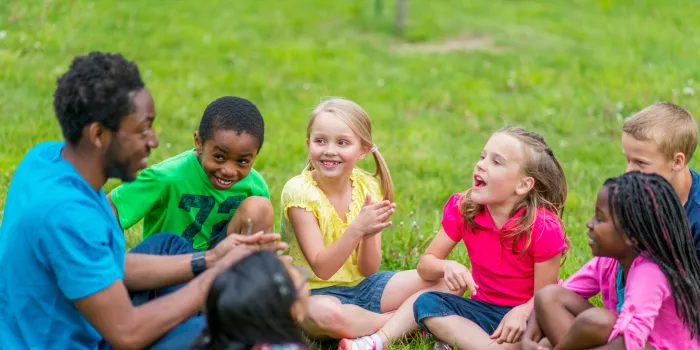Sending your child to sleepaway summer camp can bring up a range of emotions — for both your child and you — including excitement, nervousness, and anxiety. Add a bleeding disorder to the mix and some of those feelings can intensify, as you worry not only about typical camp concerns but also about your child’s medical needs being understood and managed away from home.
Summer camps for children with bleeding disorders — there are more than 50 camps operated by chapters across the country — provide a safe and supportive environment. The camps have medical staff experienced in bleeding disorders to provide the care that kids need and to give parents added peace of mind.
What can parents do to prepare their child for their first sleepaway summer camp for kids with bleeding disorders? Angellica “Gelli” Kelley, associate camp director for the Hemophilia Foundation of Michigan, which operates Camp Bold Eagle and other camps for children with bleeding disorders in the state, shares her advice:
Talk with Them About What to Expect
“It’s important to talk openly with your child about what to expect at camp, including how long they will be away,” Kelley says.
If you are able to get a general daily schedule from the camp director, you can walk your child through what each day might look like. Talk about the fun things they’ll do — swimming, playing games, arts and crafts, and singing songs around the campfire. Let them know that they’ll be surrounded by counselors and medical staff who understand their bleeding disorder and are there to help.
Reassure them that it’s OK to feel nervous and that lots of kids feel the same way their first time away from home. Let them know that they’ll be meeting other kids with the same condition they have, which may bring them comfort.
Have Your Child Help with Camp Preparations
Packing for camp can be a great opportunity to build your child’s confidence. Go over the packing list together and involve them in choosing and organizing their items — sleeping bag, pillow, blanket, toiletries, swimsuit, flashlight, and other essentials.
Encourage them to include a favorite stuffed animal or comfort item from home. “Knowing that they packed their favorite stuffy and where it is can help alleviate some stress,” Kelley says.
Letting them take the lead, even in small ways, reinforces their independence and helps them feel more in control of the experience.
Don’t Discuss Concerns in Front of Your Child
“You may feel nervous about your child going away to camp, but it’s important to avoid discussing your concerns in front of your child,” Kelley says. Encouragement is important before heading to camp.
Children often take emotional cues from their parents. If they see you stressed or upset, they may start to feel like camp isn’t a safe or fun place after all. Instead, keep the tone upbeat and positive when talking about camp. Share your excitement for them and talk about all the new things they’ll get to experience.
If you have specific questions or concerns, reach out to the camp staff ahead of time.
Resist the Urge to Contact Them at Camp
Once your child is at camp, it’s best to give them space to enjoy the experience without regular contact from home. Hearing from parents during camp can trigger homesickness, even in children who were doing just fine.
Camps are often busy, and staff may not be able to facilitate calls or check-ins. Instead, see if the camp posts photos on social media — it can be reassuring to see your child having fun without interrupting their experience. You can also send a letter or email if the camp offers that option. Many kids love receiving mail at camp, and it helps them feel connected without pulling them away emotionally from their camp environment.
If your child feels homesick, camp staff are trained to support them. At Camp Bold Eagle, for example, staff can help a homesick camper write a letter home, which provides comfort and eases the feeling, Kelley says.
“Camp is a very impactful time for your child. They will come back with fun memories of activities and friends,” Kelley says. “Talk with them when they get home, and let them share their experiences with you.”

